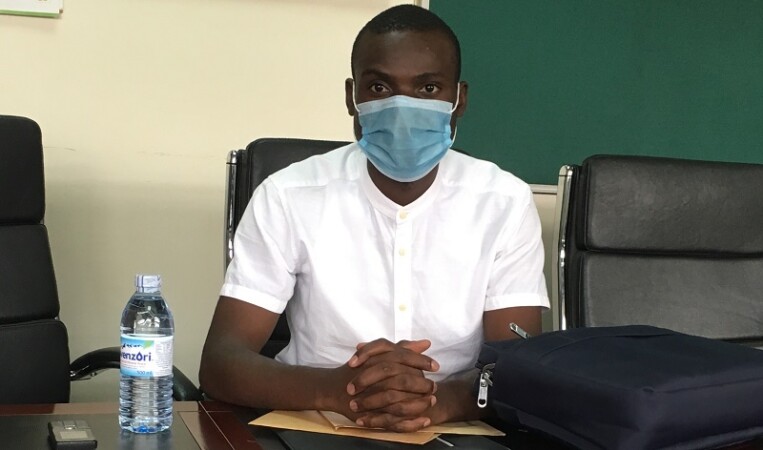Majority of the Uganda population, about 73% is rural-based and the bulk of health care professionals servicing this majority are the lower health care professionals, available at full-time basis, yet at comparably manageable budgets. These include nurses, midwives and never mentioned Medical Clinical Officers for reasons not well known.
It’s estimated that at least 2,676 of all the health facilities in Uganda are headed or directly supervised by Medical Clinical Officers, of these, about 77.3 % being rural-based, benefiting the majority of Ugandan citizens, providing preventive(60%) and curative health care(40%).
Worldwide, about 930 million people are at risk of falling into poverty due to out-of-pocket health spending of 10% or more of their household income & thus scaling up primary health care (PHC) interventions could save 60 million lives & increase average life expectancy by 3.7 years by 2030.
All people irrespective of their geographical locations deserve the right care, right in their community. Primary health care addresses the majority of person’s health needs throughout life time. This is people centered rather than disease centered. Since PHC is about how best to provide healthcare & services to everyone, everywhere, it remains the most efficient & effective way yet cheap to achieve health for all
Medical clinical officers are trained to provide both preventive & curative health care and majority being preventive which is a whole-of- society approach including health promotion, diseases prevention, treatment, rehabilitation & palliative care.
ALSO READ: The Rationale of Clinical Medicine and Community Health Professionals in the Health Sector
Investing in preventive health care is one of the mentioned pillars that are essential in setting foundation for the required human capital in NDP-III
The Ugandan population is increasingly affected by a double burden of disease, heavily made up of infectious diseases, with the five leading cause of death being HIV/AIDS (17%), malaria(12%), lower respiratory tract infections(7%), Tuberculosis (5%) & Meningitis (4%). However, there is a growing preverance of non communicable diseases (NCDs)-the sixth & seventh leading cause of mortality being cardiovascular diseases & cancers respectively which can be averted through early screening and prevention. PHC in the country has mostly been tailored to communicable diseases but its evolving to ensure that NCDs burden is also addressed
Given these evolving health dynamics & challenges, their approach & management calls for knowledge & skills advancement by the professionals to make it possible to continue providing health care to the biggest number of people yet at manageable budgets
Therefore, Medical Clinical Officers have done just that, advancing from diploma to Bachelor’s level with specialties to serve the major population with confidence while aiming at the best outcome for all.
Apart from daily management of the ill at outpatient departments throughout this country, Medical Clinical Officers provide anesthesia, psychiatry, ear, nose & throat, orthopedics, dental health, physiotherapy, occupation health and public/community health care. The Graduate Medical Clinical Officers are even capable of providing emergency obstetric care, the leading cause of maternal & neonatal mortality.
Furthermore, Graduate Medical Clinical Officers are far away equipt and capable of initiating, conducting, promoting & supervising clinical medicine and public health research.
According to the world health organization (WHO) country cooperation strategic agenda(2016-2020), it was found that the major challenges affecting Uganda health system were the lack of recourses to recruit, deploy, motivate and retain human recourses for health, particularly in remote areas; ensuring quality health care delivered and rampant inappropriate use of medicines & irrational prescription practices.
Since the primary general practioners in Uganda are Medical Clinical Officers, they responded positively and advanced their knowledge and skills to bachelors and specialties. Given their availability and flexibility to work in any locality, they are now more fit & available to serve with confidence
About 9 years ago, the government embarked on training of bachelors of clinical medicine & community health through its state house scholarships and loan scheme & currently with big numbers available to deploy, unlike other cadres in the country, its only clinical medicine where recruitment of bachelor’s holders has not commenced in public service
Therefore the country; Ministry of health, Ministry of Public service and Local government should be excited about this milestone achieved towards production, distribution and retention of human recourses for health through getting interested & recruiting Medical Clinical Officers at Bachelor’s level to archive Uganda vision 2040, which supports skilling of human recourses as a way to advance service delivery in the country & attainment of universal health coverage
The author is; Kasadha Nasser, graduate of clinical medicine & community health (BcmCh).
Chairperson; BCMCH graduate society of Uganda, tel-+256 703706927
Email: [email protected]
If you would like your article/opinion to be published on Uganda’s most authoritative news platform, send your submission on: [email protected]. You can also follow DailyExpress on WhatsApp and on Twitter (X) for realtime updates.



